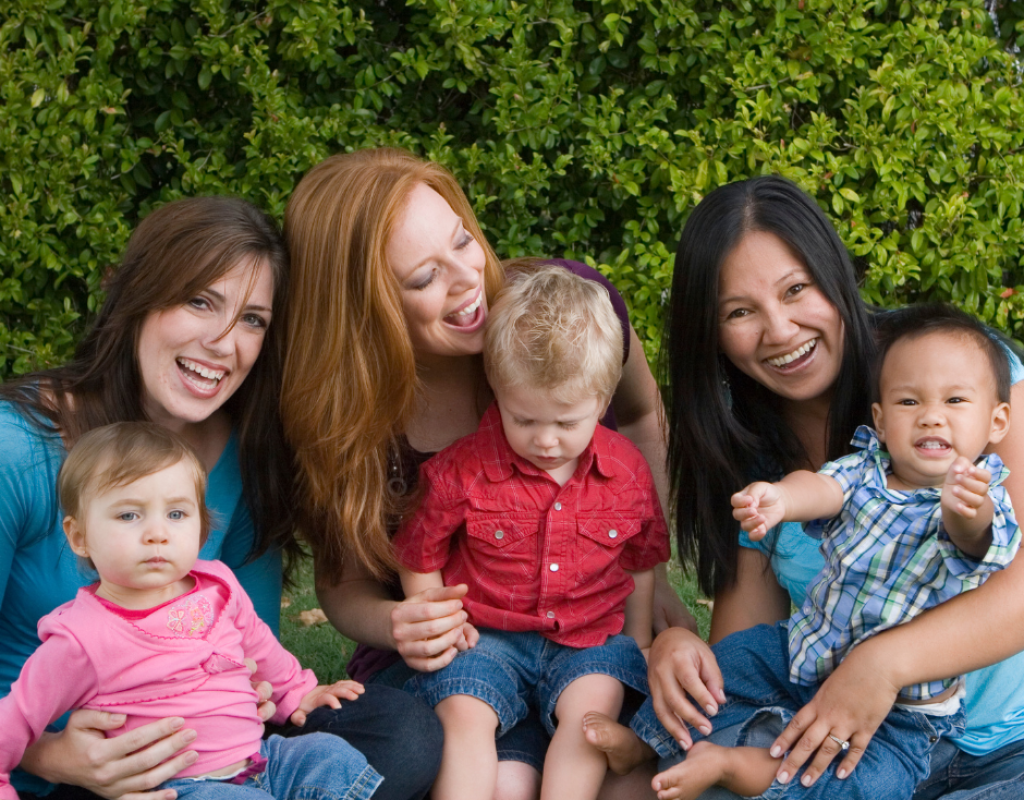In the world of parenting, it’s easy to get caught in the crossfire of the “Mommy Wars.” This term, often used in social media and parenting circles, refers to the intense debates and judgments parents face over their childrearing choices. But let’s shift our perspective and consider a world where differences in parenting styles are celebrated, not critiqued. In this post, we’ll explore how embracing diverse paths in parenting can lead to a more supportive community and a less stressful experience for everyone.
Parenting is Not a Competition
Parenting is not a race or a contest to see who’s right or the best. It’s a deeply personal journey, unique to each family. The pressure to conform to societal expectations or to match the curated lives seen on social media can be overwhelming. But remember, what works for one family might not work for another, and that’s perfectly okay. The key is to find what works best for you and your child.
Feeding Choices – ‘Fed is Best’
One of the most heated debates in parenting circles is how we feed our babies. Breastfeeding has numerous benefits, but it’s not always possible or preferable for everyone. The ‘Fed is Best’ philosophy emphasizes that the health and happiness of the baby are what’s most important, whether that’s through breastmilk, formula, or a combination of both. Pediatricians agree that ensuring your baby is well-fed, safe, and loved is what truly matters.
Sleep Training – Cry It Out vs. Other Methods
Sleep training is a topic that can divide even the closest of parenting communities. The “Cry It Out” method, where a baby is allowed to cry for a specified period before being comforted, works for some but feels wrong for others. Alternative methods, such as gentler approaches that involve more parental intervention, can also be effective. The right method is the one that aligns with your family’s values and your baby’s needs, ensuring a good night’s sleep for everyone.
Approaches to Discipline – Gentle Parenting vs. Traditional Methods
Discipline is another realm where parenting philosophies can significantly differ. On one side, we have gentle parenting, which emphasizes understanding, empathy, and guiding children rather than controlling them. It focuses on building a strong, cooperative relationship with the child. On the other side are more traditional methods, which might include stricter rules and consequences. These approaches often rely on established boundaries and clear expectations.
Both methods aim to teach children right from wrong and help them develop into responsible adults. Gentle parenting is praised for its focus on emotional intelligence and communication, while traditional methods are often valued for their clear structure and consistency. The choice between these approaches depends on a family’s values, the child’s temperament, and what works best for their unique dynamic. In any approach, the key is consistency, love, and respect, ensuring that children feel secure and understood.
Balancing Involvement – Helicopter Parenting vs. Free-Range Parenting
Another significant aspect of parenting styles lies in the level of parental involvement and supervision. Helicopter parenting, characterized by a high level of supervision and involvement in a child’s life, contrasts sharply with free-range parenting, which promotes independence and self-reliance from an early age. Helicopter parents are often deeply involved in every aspect of their child’s life, from schoolwork to social interactions, aiming to protect and ensure success. On the other hand, free-range parenting advocates for giving children the freedom to explore, make mistakes, and learn from them within safe boundaries.
While helicopter parenting can provide a sense of security and support, it may limit a child’s ability to make independent decisions. Free-range parenting, while fostering independence, requires a secure environment and a level of maturity from the child. The best approach might lie in a balance between the two, offering guidance and support while allowing children enough space to grow and learn on their own terms.
Stay-at-Home vs. Working Parents
The decision to stay at home or return to work is another area where parents often feel judged. Each choice comes with its own set of benefits and challenges. Stay-at-home parents may enjoy more time with their children but might face isolation or financial strain. Working parents contribute to the family’s financial security but often struggle with guilt and time management. Both paths are valid and reflect the diverse needs of families.
Childcare Choices – Daycare vs. Private Nanny
One of the key decisions many parents face is choosing the right kind of childcare. The debate often centers around the choice between childcare centers and private nannies. Each option offers distinct advantages and challenges, and the right choice varies depending on family needs, lifestyle, and preferences.
Childcare Centers (daycare) offer a structured environment, often with a focus on education and socialization. They provide children with the opportunity to interact with peers and learn in a group setting, which can be beneficial for their social development. These centers are typically regulated and staffed by trained professionals, offering a consistent and standardized level of care.
Nannies, on the other hand, provide more personalized care, often within the comfort of the child’s home. This one-on-one attention can be tailored to the family’s and child’s specific needs and routines. Nannies can offer greater flexibility in terms of hours and duties, but finding the right match and managing the employment relationship can be more challenging compared to using a childcare center.
The choice between a childcare center and a nanny depends on various factors such as the child’s temperament, the parents’ work schedule, budget, and the desired level of personalization in care. Some families might prefer the individual attention a nanny can provide, while others value the socialization and structure of childcare centers. Like all parenting decisions, the best choice is the one that aligns with your family’s unique needs and provides the best environment for your child to thrive.
Educational Choices – Public vs. Private Schooling
Education is a pivotal aspect of a child’s life, and the choice between public and private schooling is one that many parents weigh carefully. Public schools offer a diverse social environment and a curriculum that adheres to state standards. They often provide a broader picture of the real world and make education accessible to all children. Private schools, on the other hand, are funded through tuition payments and private contributions. They may offer specialized curricula, smaller class sizes, and unique educational philosophies or religious teachings not available in public schools. Private education can also offer more individualized attention to students but comes at a financial cost.
Each type of schooling has its strengths and challenges. Public schools allow children to experience a wide range of perspectives and often have more resources for extracurricular activities and special education programs. Private schools might offer more specialized educational experiences and can sometimes provide a more tailored learning environment. Ultimately, the decision between public and private schooling depends on the specific needs and values of the family and the child. Factors like the quality of the local schools, the child’s learning style, family values, religious beliefs, and financial considerations all play a crucial role in this decision.
Creating a Supportive Community
In a world where parenting choices are often scrutinized, building a supportive community is essential. This means sharing experiences and advice without judgment and understanding that there’s rarely a one-size-fits-all approach. Whether through local support groups, online forums, or casual meetups, connecting with other parents can provide valuable perspectives and much-needed reassurance.
Parenting, in all its forms, is a journey filled with both triumphs and challenges. It’s important to remember that there is no universal blueprint for raising children. Each family’s journey is unique, shaped by their individual values, circumstances, and experiences. As we navigate the diverse landscape of parenting, let’s focus on what unites us – our commitment to the well-being and happiness of our children. By sharing our experiences and respecting different approaches, we can enrich our own parenting toolkit and build a more understanding and supportive community. At the end of the day, the best way to parent is the way that works best for your family.




